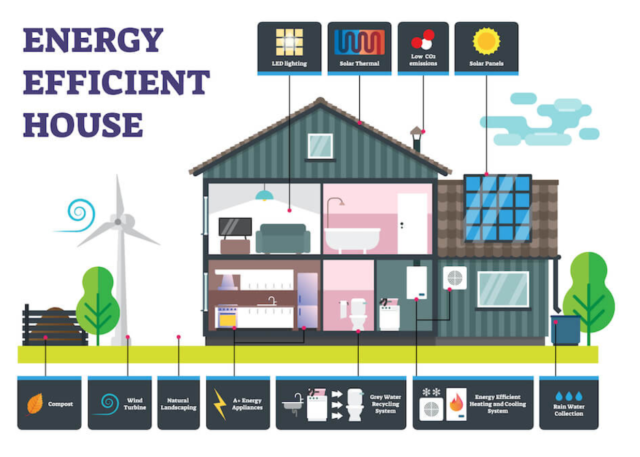
Innovative Materials for Energy-Efficient Home Construction
Creating energy-efficient homes involves careful consideration of construction materials. As sustainability becomes a priority, the choice of building materials plays a crucial role in designing homes that are not only eco-friendly but also cost-effective in the long run.
1. High-Performance Insulation
An integral part of energy-efficient home construction is the use of high-performance insulation materials. These materials help regulate indoor temperatures, reducing the need for excessive heating or cooling. Innovations in insulation, such as aerogel and vacuum-insulated panels, provide superior thermal performance while minimizing the environmental impact.
2. Advanced Window Technologies
Windows are significant contributors to energy efficiency. Utilizing advanced window technologies, such as low-emissivity coatings and double-pane glazing, helps prevent heat loss during winters and minimizes heat gain in summers. Smart glass technology allows homeowners to control the amount of light and heat entering the house, optimizing energy consumption.
3. Sustainable Structural Materials
Choosing sustainable structural materials is fundamental to energy-efficient construction. Engineered wood products, recycled steel, and bamboo are examples of eco-friendly alternatives that offer durability and reduce the environmental footprint of construction. These materials often come from renewable sources and promote responsible resource use.
4. Cool Roofing Materials
Cool roofing materials reflect more sunlight and absorb less heat, contributing to a cooler indoor environment. Reflective roof coatings and materials with high solar reflectance indices (SRI) are key components in constructing energy-efficient homes. These materials not only enhance comfort but also reduce the demand for air conditioning.
5. Thermal Mass Materials
Utilizing thermal mass materials in construction helps stabilize indoor temperatures by absorbing and releasing heat. Materials like concrete and stone have high thermal mass, providing a buffer against temperature fluctuations. This results in a more comfortable living space and decreases reliance on heating or cooling systems.
To explore a comprehensive range of Energy-Efficient Home Construction Materials, visit waslinfo.org. This resource provides valuable insights into the latest innovations, helping homeowners and builders make informed decisions for sustainable and energy-efficient construction projects.
6. Recycled and Upcycled Materials
Incorporating recycled and upcycled materials into construction reduces the demand for new resources and minimizes waste. Recycled steel, reclaimed wood, and recycled glass are examples of materials that contribute to sustainable building practices. Their use not only supports environmental conservation but also adds unique character to homes.
7. Green Roofing Materials
Green roofing involves growing vegetation on rooftops, providing insulation and reducing heat absorption. Using materials like eco-friendly roofing membranes, soil, and drought-resistant plants, green roofs contribute to energy efficiency by reducing energy consumption for heating and cooling. Additionally, they contribute to biodiversity and improve air quality.
8. Low VOC Paints and Finishes
Energy-efficient homes extend beyond structural materials to include interior finishes. Choosing low Volatile Organic Compound (VOC) paints and finishes ensures better indoor air quality. These products emit fewer harmful chemicals, creating a healthier living environment while supporting sustainable and responsible manufacturing practices.
9. Energy-Efficient Lighting Solutions
While not traditional construction materials, energy-efficient lighting solutions play a vital role in reducing overall energy consumption. LED lighting, for instance, consumes significantly less energy than traditional incandescent bulbs. Integrating smart lighting systems further enhances energy efficiency by allowing precise control and automation.
10. Monitoring and Control Systems
In the era of smart homes, monitoring and control systems contribute to energy efficiency. These systems enable homeowners to monitor and manage energy usage, adjusting heating, cooling, and lighting remotely. Smart thermostats, energy management apps, and home automation technologies empower residents to make informed decisions for optimal energy conservation.
In conclusion, the selection of energy-efficient home construction materials is a cornerstone of sustainable and eco-friendly housing. By incorporating innovative and responsible choices, homeowners and builders contribute to creating homes that not only conserve energy but also promote a healthier and more sustainable living environment.
